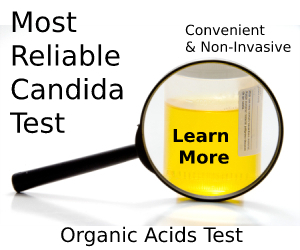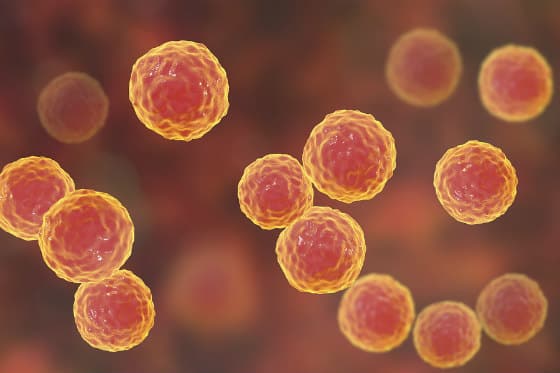The signs of candida die-off, also known as the Jarisch-Herxheimer response or just Herxheimer response, occurs when you take an antifungal and the yeast is killed off too quickly and overwhelms the body with toxins. It may also present when you first begin the Candida diet because you are depriving it of its food source and it dies.
The Herxheimer response gets its name from two dermatologists Adolf Jarisch and Karl Herxheimer who discovered the phenomenon back in 1895. It was originally discovered as a healing crisis that occurred in people with syphilis but was then found to be a reaction that occurs in a variety of illnesses in response to treatment. The reaction presents itself as intensification or extension of symptoms immediately preceding a period of time when the patient’s health then improves.
With Candida overgrowth, this phenomenon is called, die off. When the yeast dies, it releases a massive amount of toxins. You may experience a worsening of symptoms, new symptoms, or flu-like symptoms. It can be quite severe for some people.
A little die-off is a good thing. It tells you that what you’re doing is definitely working, however, a lot of die-off can be completely debilitating and counterproductive. If there are too many toxins at one time, it can overload the capacity of your detoxification system and thus cause more harm than good. If your die-off is too intense, then cut back on your antifungal until it lessens and then increase it slowly over a period of time, or try another antifungal that is not as potent.
Common Signs of Die-Off
The signs of candida die-off can consist of almost anything, but the most common scenario is that you will have an exaggeration of whatever type of symptoms it is that you already experience. For example, if anxiety is a common symptom for you, then your anxiety level is likely to increase temporarily. You may experience physical and/or psychological symptoms. Here are some of the most common signs of die-off:
- brain fog
- poor concentration
- tightness in the chest
- heart palpitations
- fatigue
- muscle and joint pain
- headaches
- sore throat
- anxiety
- depression
- irritability
- crankiness
- diarrhea
- sinusitis
- itching
- constipation
- gas and/or other gastrointestinal distress
- nausea
- dizziness
- feeling sick all over
- intense cravings for sweets and carbohydrates
- cravings for alcohol
- you may even feel like you’re drunk, because the yeast puts off alcohol.
How to Reduce Die-Off Severity
There are several steps you can take to reduce the severity of your die-of.
- One of the most important is to stay on the Candida diet. If you eat sugar or a lot carbohydrates, drink alcohol, or consume caffeine, you will feed the Candida as you are killing them. This will create a great deal of die off symptoms and you’ll never make progress.
- High doses of Vitamin C (helps with oxidative stress from die off and buffers reactions)
- Cleanse the colon with enemas or colonics (this flushes the toxins out)
- Drink lots of water (keeps toxins moving)
- Exercise mild to moderately (boosts immunity and assists with detox)
- Bentonite clay (abosrbs toxins)
- Breathing exercises (helps body cope with stress of die off)
- Charcoal tablets (absorbs toxins)
- Pectins (absorbs toxins)
- Silymarin (supports the liver)
- Molybdenum and pantethine (supports the liver and helps get rid of acetaldehyde)
- Take Oxypowder (flushes toxins)
The signs of Candida die-off will diminish over time, but the length of its duration is dependent on how strong the antifungal is that you’re taking, how the antifungal kills it, how capable your body is of detox, and how much Candida overgrowth you have. It may last a few hours or it may last a few weeks.
Some antifungals, like Nystatin, work by literally blowing up the Candida. As you can imagine this creates more intense die-off symptoms than antifungals that kill it gently.
Try and hang in there and remind yourself that it’s only temporary and that you’re making progress. However, if it’s too severe, be kind to yourself and cut back on your antifungal. Don’t give up completely, though. If one antifungal gives you die-off that is too intense, then try a different product that is a little less powerful.


